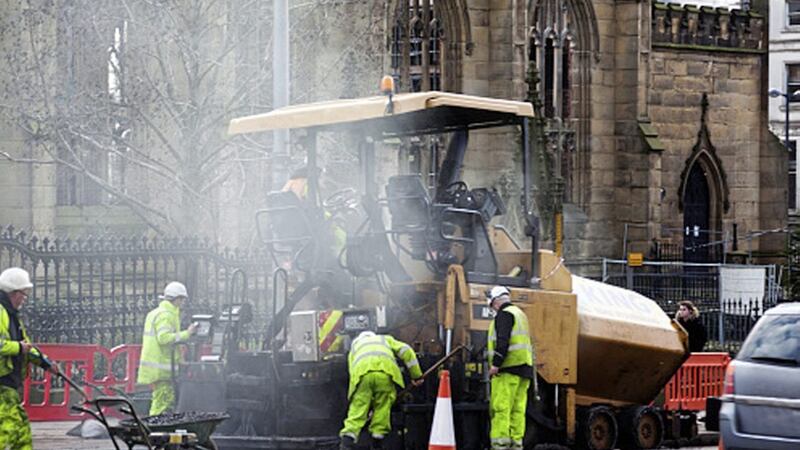THE volume of public sector construction work out to tender has halved in the space of a year according to the figures from the main industry body in the north.
Construction Employers Federation (CEF) managing director John Armstrong said the lack of a Stormont Executive is one of the many obstacles to sustained growth in the sector in the north, with much work to be done.
"The Northern Irish construction industry, the indigenous industry is still heavily dependant still on public sector spending and one of the concerns we have is the volume of works coming to the market seems to be slowing down. We monitor this quite closely and there are less than 50 public sector construction projects out to tender and that's less than half of the figure for October last year."
"The industry is fast approaching a dead end in terms of its public sector workload," he said.
Mr Armstrong was speaking at the second CEF/BDO Northern Ireland Half-Year State of Trade Survey, which revealed that in the last six months of 2017 just under half of firms worked at full or almost full capacity, down from two thirds in the first half of the year.
The survey also shows an increase in costs for companies across the board including labour, raw material and plant costs, while a shortage in trades such as bricklayers, plasterers and joiners has become a cause for concern.
When asked if it was a crisis within the sector, Mr Armstrong said it had not reached that level just yet and believes the issue is encouraging young people into the industry.
"I wouldn't call it a crisis, but there's certainly a skills shortage and it is a major problem for the industry," he said.
Looking at work expectations in the north over the next 12 months, around two-thirds of firms expect it to level out or, indeed, decline. That being said, only a small number of companies see the year ahead as being about survival, with a third of respondents focused on stability, a quarter on growth and a third on increasing profitability. In terms of employment the sector's outlook for growth is largely flat for the year ahead.
Mr Armstrong believes the year-long political deadlock has now begun to feed through to the construction industry, with civil servants placed in an "intolerable position".
"When we consider infrastructure, schemes require in many cases years of preparatory work and approvals. With little political direction beyond the Executive’s Flagship schemes, it is therefore impossible for future infrastructure planning across government clients to, properly, take place. When you consider industry’s concerns as to the Northern Irish market over the coming year, you can clearly see how this lack of political authority is now becoming a daily concern for local contractors.”
Brian Murphy, managing partner for BDO in Northern Ireland said it is disappointing that positivity within the construction sector seems to be more focussed on work outside of Northern Ireland.
"This disappointment is compounded by the fact that Northern Ireland is in great need of significant infrastructural investment. It is welcomed that the recent budget has included £410m for various infrastructure projects, but there is much more to be done."








